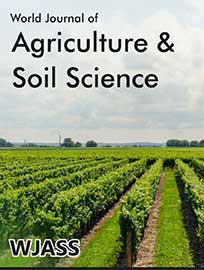 Research Article
Research Article
Review on The Expected Role of Climate Smart Agriculture on Food System in Ethiopia
Bikila Tesfa Kebeda*1, Temesgen Olani Abdis1 and Abera Jaleta Berkessa2
1Department of Agricultural Economics, Ethiopia
2Department of Horticulture, Ethiopia
Bikila Tesfa Kebeda, Department of Agricultural Economics, Bedele College of Agriculture and Forestry, Mettu University, Ethiopia.
Received Date: June 24, 2019; Published Date: July 09, 2019
Abstract
This paper reviews various articles, reports and documents on expected role of climate smart agriculture on food system and factors affecting its adoption in Ethiopia. Climate change is global phenomena and is already negatively impacting agricultural production globally and locally. Climate risks to cropping, livestock and fisheries are expected to increase in coming decades, particularly in low-income countries where adaptive capacity is weaker. By 2030, 90% of the world’s major crops, including maize, rice and wheat, will experience reduced or stagnant growth rates as a result of climate change. Climate change is expected to have a greater impact in low-income countries such as Ethiopia because of low numbers of trained people, poor infrastructures and limited economic capability to respond to the challenges. Developing countries such as Ethiopia are less capable of mitigating or adapting to the changes due to their poverty and high dependence on the environment for subsistence. The mainstay of the Ethiopian economy is rain fed agriculture, which is heavily sensitive to climate variability and change. So, this climate change risks require changes in agricultural technologies and approaches to improve the lives of those still locked in food insecurity and poverty and to prevent the loss of gains already achieved. To achieve food security and agricultural development goals, adaptation to climate change will be necessary. Climate-smart agriculture (CSA) is an integrative approach to address the interlinked challenges of food security and climate change. CSA practices in Ethiopia includes proven practical techniques such as mulching, intercropping, conservation agriculture, crop rotation, integrated crop-livestock management, agroforestry, improved grazing and improved water management. CSA has great role in improving food system by addressing food security, reducing poverty and addressing the relationship between climate change and agriculture. Access to information, access to finance and insurance, access to Agricultural input and access to Credit service are some factors that affecting Adoption of CSA. Therefore climate-smart agriculture is essential approach that farmers are supported to adopt to sustain their livelihoods.
Keywords: Climate smart agriculture; Climate change; Ethiopia
-
Bikila Tesfa Kebeda, Temesgen Olani Abdisa, Abera Jaleta Berkessa. Review on The Expected Role of Climate Smart Agriculture on Food System in Ethiopia. World J Agri & Soil Sci. 2(5): 2019. WJASS.MS.ID.000548.
-

This work is licensed under a Creative Commons Attribution-NonCommercial 4.0 International License.






